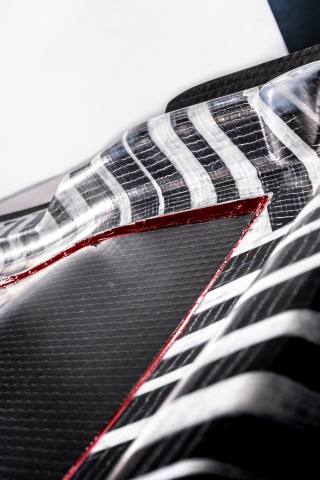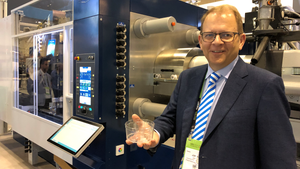Adhesives for multi-substrate bonding meet needs for volume production of composite parts
Adhesive bonding is replacing more conventional assembly methods involving welding, riveting and screwing.
December 27, 2016

Fast-curing and reliable adhesives and matrix resins from Germany’s Henkel are reportedly answering the increasing call from the auto industry for high performance continuous fiber-reinforced composites in integrated structural assemblies. At K 2016, the company exhibited various assembly solutions for new lightweight materials from its broad materials portfolio.
|
Adhesives are a critical component in allowing auto OEMs to bond disparate materials |
Adhesive bonding is replacing more conventional assembly methods involving welding, riveting and screwing according to Henkel. Not only is it highly effective, but it is also safer and simplifies many processes. The latest developments from Henkel make it possible to produce assemblies cost-effectively in volumes that may exceed 10,000 parts per year.
During the show, Henkel turned the spotlight on an adhesive for joining a carbon fiber reinforced composite roof to a frame carrier made of thermoplastic. The adhesive, Loctite EA 9065, provides the high shear strength required for joining such important roof parts. It also bonds effectively to many different substrates, including steel and aluminum, as well as fiber reinforced plastics or thermoplastic composites based on polyamides.
Loctite EA 9065 also provides high crash durability, and it can be formulated for fast curing. Thus it is suitable for automated application in large quantities. “With Henkel offering high performance adhesives, we have the right partner for the integration of different composite substrates as thermoplastic and thermosets,” explained Erich Fries, head of the Composites/Surfaces business unit at KraussMaffei.
Apart from composite adhesives that can be tailored to specific resins, Henkel also produces matrix resins for various types of fiber and textile-reinforced composites, as well as binders and release agents. “Henkel is taking a strategic approach to large-series automotive composites production,” said Frank Kerstan, Global Program Manager, Automotive Composites. “We position ourselves as a solution provider of composites materials for structural parts across different automotive segments and tailored adhesives for the assembly of multi-substrate components. Henkel is particularly strong when it comes to providing process and application know-how in resin transfer molding, [or] RTM.”
About the Author(s)
You May Also Like





